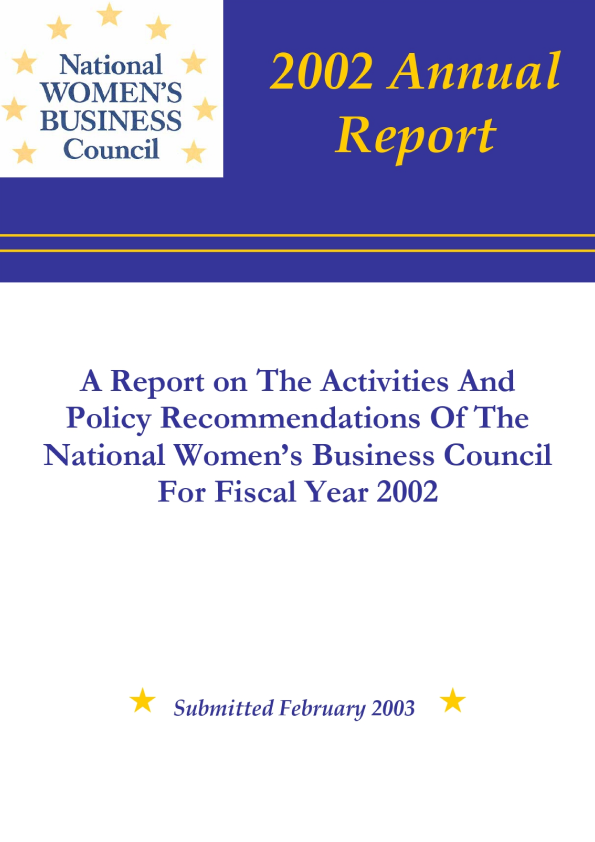
To the President and Members of Congress:
I am pleased to submit, on behalf of its members, the National Women’s Business Council’s Annual Report for fiscal year 2002.
The Council is honored to advocate for the nation’s more than 9 million women-owned businesses. As one of the fastest growing segments of our country’s business community, women-owned enterprises are a vital contributor to the well being of our economy.
This report reflects a transition period in the momentum of the Council from one of relative inactivity due to the absence of a Chair, to a period of accelerated action in the last quarter of the fiscal year.
Upon accepting the appointment to the Chair in May, actions were taken to fill staff positions, nominate members for council vacancies and identify projects for funding that would be most meaningful to the business development needs of women business owners. Among these are:
• Evaluation of a women-friendly credit scoring system;
• A Capitol Hill Roundtable on healthcare issues;
• Outreach “issues discussions” in major cities to identify the business development needs that most impact the success of women-owned enterprises (in association with The Schlesinger Library’s national touring exhibit “Enterprising Women”); and
• Further analysis of existing census data to better understand the trends and economic contributions of women-owned businesses.
In keeping with the Council’s mandate to inform the policy debate through adding to the body of research available on women-owned businesses, two significant studies were completed in 2002:
- A national evaluation of best practices in access to capital programs; and
- A study that demonstrates that the capability of women-owned firms is not a rationale for under-representation in federal subcontracting.
The National Women’s Business Council is committed to continuing the important work of identifying those issues which are fundamental to the success of women-owned businesses, to educate and connect the women’s business community, and to serve as a leading advocate for our nation’s women entrepreneurs. In this way, the Council can best advance all of our economy’s stakeholders to create a stronger business community and nation.
Respectfully,
Marilyn Carlson Nelson
Chair, National Women’s Business Council

